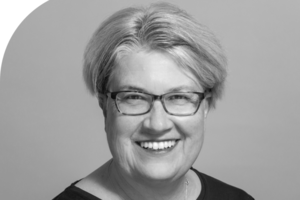Skin in the game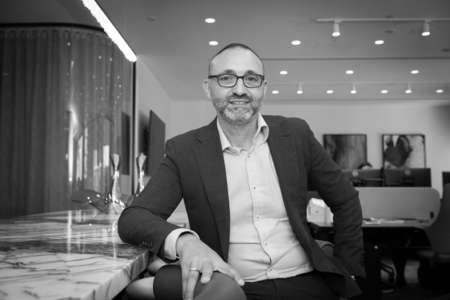 Viola Private Wealth executive chair, founding partner, and adviser Charlie Viola has worked hard to build his personal brand, and it shows. Viola's face is plastered across financial services media. This ubiquity, however, isn't without rhyme or reason. Andrew McKean writes. Individually, Viola has consistently ranked as one of the country's best financial advisers, and, as a team, he, chief executive Sean Ward, and chief operating officer Andrew Levi, orchestrated the buyout of Pitcher Partners' wealth management division, which led to the formation of one of the most preeminent private wealth shops in town. But even though Viola's name is on the door, and there's no shortage of press to go with it, which he admits feels "a bit weird," he doesn't see himself as the centre of the story. What I now want is for the brand to transcend me. At some point, I just want to be someone who works here. Nobody ever asks, 'what do you want the brand to stand for?' 'What do you want it to mean? "What I now want is for the brand to transcend me. At some point, I just want to be someone who works here. Nobody ever asks, 'what do you want the brand to stand for?' 'What do you want it to mean?' For us, it's all about being a place people feel comfortable," Viola says."This business wasn't created by just me. All the people who came with me through the management buyout of Pitcher's... and the rest of the team, it's also about them." Off to the races Viola's professional career kicked off as a bank teller for Commonwealth Bank in Tahmoor, having "fallen into it" after a brief stint at university, where he flunked on attendance. He might've waltzed into the role because he "didn't have anything else to do," but as the bank began to shed its government skin and transform into a commercially driven machine, he found his edge in its blooming sales culture. A conversation with a visiting manager from the big smoke swayed him to leave his okay, but admittedly "kind of dead-end job," and move to the city to build a career at the bank. Though still a bank teller once he moved, Viola's gift of the gab helped him shine among colleagues of similar age and experience. He was promoted to a customer service role, and then again to a role loosely resembling that of a junior advisor. There, he was trained to sell the bank's in-house managed funds to clients with less than $50,000 - which he did "reasonably successfully," he says. That led to an invitation to join the bank's new pilot program for premium banking, eventually landing him in a role as an investment consultant - "like a financial adviser," Viola says. Viola held that role, his final one with the bank, for three years, until a meaningful shift in tone came with the arrival of a new manager, around the time the bank acquired Colonial, who made it clear that the investment consultant role was simply a distribution network for pushing the bank's products. "I always thought to myself, aren't we more than that? Aren't we here to add value and try and provide benefits? When they made it clear that you're just going to be remunerated and rewarded for selling the bank's products, and we don't care whether you're doing a good job for the individual, I thought, maybe I'll start looking out at the big wide world," he says. He left the bank, landing at Moore Stephens Sydney, which later became Pitcher Partners, where there were, at least to begin with, virtually no clients, infrastructure, or systems. The move was like going from the zoo to the jungle, he says. At the bank, everything was provided, food was thrown over the fence. In the wild, he had to hunt for every meal. In those formative days, Viola spent many a night wrestling with the idea of whether to throw in the towel and trudge back to the bank. "I remember saying to a couple of people at the time, either I'm really shit at this and need to go back to what I was doing, or dig in, give it a go, and see what happens," he says. "It was immensely stressful. I'd come from an environment where I kept being told how good I was - a talented writer of business for the bank and its products - only to come here [Moore Stephens] and realise that nobody knew who I was, nobody cared..." Cranking the pressure up a notch, even though some, not all, of Moore Stephens' partners supported having a wealth division and saw it as a complimentary ancillary business, Ultimately, Viola dug in his heels, ringing what he describes as "centres of influence" out of the phone book, people who might be able to send work his way. Most, he says, told him to bugger off, but a few didn't, and slowly, slowly, momentum began to build. Viola became a partner at Moore Stephens in 2005. With the help of Martin Fowler, he built up the wealth practice through pure organic growth. As the firm grew, it began looking to join a better national network. In 2015, the opportunity came up to join the Pitcher Partners network, which the firm accepted. "That was an important moment. I think the Pitcher's brand was probably stronger than Moore Stephens. It gave us a good deal of credibility in the market," he says. But as the chartered firm kept growing, it became clear that what the Sydney practice needed in terms of systems, processes, and infrastructure was possibly different to what the wealth arm required. The financial model that suited a business like that was likely different too. "What probably happened is that we had the wealth business, which was a bit of an outlier versus the chartered practice, both in terms of expectation of earnings and what individuals can earn, and the types of individuals that you have," he says. "The chartered firm is great, and it's done a really good job over a really long period of time, but there's a certain type of person who works in that. To go and really succeed in the wealth world, you needed people who were entrepreneurial. You needed people who would pound the pavement, knock on doors, and try and generate revenue. And if they do that, they'll want to be rewarded for it, and they very much want it to be a meritocracy." Whereas in the chartered world, and many professional service firms, the culture tends to favour equalisation, which he describes as "somewhat of a flat Earth policy. That, he adds, "doesn't work in the wealth world." In the end, it made more sense to separate from the chartered world altogether, which is why Viola, Ward, and Levi spearheaded the management buyout in September last year. "Pitcher supported my decision, and we wouldn't have been able to do it without their support. I only have good things to say about the guys at Pitcher, they helped me build a business and a career, and gave us the platform to take it to the next level," he says. A new chapter Viola Private Wealth today manages $2.5 billion in assets, with ambitions to grow that to $10 billion over the next five years. The plan is to scale the adviser headcount alongside it, targeting a team of 10 to 12 advisers, a necessary lift to match the scale of its objective. The firm's adviser growth, Viola explains, will come from three directions. First is internal, backing its "exceptional associates," supporting them, and building out their careers. Second is attracting lateral hires, experienced advisers who've done well elsewhere but haven't had the right model to show them the value of their talent, such as Angus Mann, who joined from Mutual Trust in February. It's for that reason, Viola says, the firm's model gives them equity for the value they bring. "We understand that every adviser is an elevator asset... so we want to incentivise them [advisers] to stay here, build a career, and we'll do that by getting them aligned with equity, and with each other. In lots of places that pay off a grid, the only output they get is cash, and their biggest competitor is the person sitting next to them, because they're both using the same brand and probably pitching to the same types of clients," he says. Thirdly, if the right opportunity comes along, he says the firm would consider acquisitions. The ideal target would be good advisers with quality clients who don't want to deal with operational burdens, be that systems, technology, data, resourcing, artificial intelligence, or anything else. Viola touts that the firm has great infrastructure and adds that's where "we can add value." "What we understand profoundly is that the future of these [wealth] businesses is all about how you communicate with the client, how you produce the reporting. We're absolutely an investment management business, but in reality, we're a data business," he says. "It's about capturing the clients data, being able to pull all the information together, and presenting it to them in a way that's easy - that's all done by tech. We're working really hard invest in our data management, in how we use artificial intelligence in the business." Despite being entirely agnostic to platform and how money is managed or held, the firm, consolidates all the data, from wherever a client's assets sit into a single system. However, an impressive tech stack, even if it's "an absolute key focus of ours," perhaps isn't what wins the hearts and minds of prospective high-net-worth clients. The secret sauce to becoming stewards of their capital starts, at least for Viola, with building a personal brand, saying yes to every podcast, every interview. Now, that alone won't buy credibility when he's sitting across the table from a client, but it might just buy the first meeting. What earns credibility? "Just be normal," Viola tells the advisers he mentors. "Whether I'm talking to a new client with $50 million, a company chief executive, or my friends that I grew up with, I'm pretty much the same human being. And you have to understand that even the guy with $50 million has got anxiety - anxiety that he doesn't have enough, that his kids are going to fight over it, that he has to turn the tap off on his income," he says. "Ultimately, I say to every client, before you choose us or anybody else, work with whoever you feel most comfortable with. These are very real relationships. "If we're working together for the next 20 years, something will go wrong along the way, and we need to feel comfortable being open with each other about those things." Clients circumstances change over time, as too has their access to information, to product, and the sheer volume of investment opportunities out there. Once upon a time, advisers could get way with parking client money in large-cap equities, which have practically gone up for the last decade. These days, however, clients are well versed to the fact that there is private debt, private credit, and private equity can be on the table too. With that has come the expectation that advisers work hard to find quality opportunities clients can't access on their own. Viola Private Wealth, for its part, was an "early mover." "We do have a due diligence process. On the private market side, we do a deep dive in terms of reviewing investments - something like 30 to 40 hours of due diligence on any manager that comes to us. What tends to happen, like with anything, is you get to know the managers you like and trust, and are happy to give your client's money to," he says. Private market is investing, he says, is often all about the jockey. The spread in managers returns backs that up. For example, top-quartile private equity managers can deliver an internal rate or return north of 20%, while bottom-quartile managers can struggle to outperform public markets. Viola keeps a few rules in mind when picking the right jockeys. He tends not to invest where managers lack "skin in the game," or when he has doubts about the commerciality of a manager. If he's setting sail to invest in a private market fund or strategy for the long haul, he needs to know the manager can continue to run it and isn't going to end up broke. He also looks to past performance. The idea that it's no indicator of future returns, he adds, "is the biggest load of bullshit that was ever said," because it gives a read on process, capability, how a manager thinks, how they handle exits, and what they do when things go pear-shaped. "If we're dealing with a private debt or private credit manager, we want to know what happens if the debt's got to step into the shoes of equity. We want to know what happens if one of the assets is a pub and it burns down. We want to know their filters, due diligence process, and resources for review. You only get that by historical performance," he says. Viola has naturally ended up with a few favourites, mostly in the private markets space. Within the private debt sleeve, he points to Qualitas, Pallas Capital, Stamford Capital, Manning Asset Management, and RW Capital, as managers the firm has given a "fair bit" of capital to over time. In private markets, he typically prefers managers who are "absolute specialists" in their asset class, whether on the debt or equity side. He does say, though, that multi-discipline global managers like KKR, JP Morgan, Macquarie, and Janus Henderson offer good products for sophisticated investor-type clients across a range of asset classes. When it comes to more boutique managers, he'd rather they focus all their resources on the one thing they do best. While manager selection in private markets leans heavily on specialisation, the approach in public markets is a little different. Domestic equities are mostly picked in-house. For international equities, the firm is of the view that indexes tell a story, whereby most of the good stuff floats to the top. That said, there are a few global managers they rate, including Loftus Peak, with its disruption fund, and Aoris Investment Management.
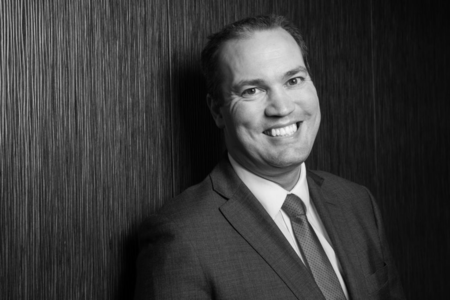 Giving for impactWhen Simon Freeman took the reins at the Paul Ramsay Foundation, he knew very little about the philanthropy. Now he's part of a growing charitable cohort ... 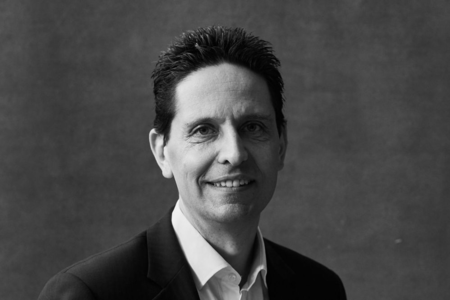 Point of differenceTo L1 Capital co-founder and chief investment officer Mark Landau, success in funds management is all about knowing your value proposition. 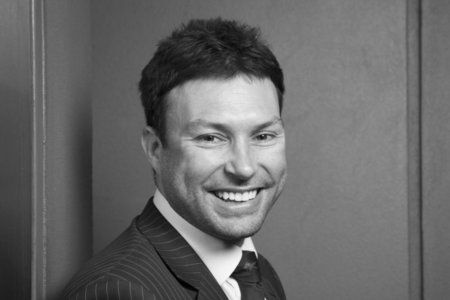 High convictionOphir Asset Management co-founder and David Paradice protege Andrew Mitchell may have a net worth of $46 million, but he doesn't own a house or a couch ...  FS Archives: The House that La Trobe Financial builtFollowing La Trobe Financial's landmark deal with US private equity manager Blackstone this week, FINANCIAL STANDARD revisits a 2011 profile interview ...  Finding the right riskRyan Levin doesn't like to take uncalculated risks. He doesn't scuba dive or sky dive, and he steers clear of the stock market, preferring to stick with ...  Owning the futureWilson Asset Management chair Geoff Wilson talks about his investment philosophy, going all the way back to reading the "numbers page" in his father's ...  Guest of honourAs one of the most influential figures in Australian wealth management, Barry Lambert knows a thing or two about calculating interest by hand - not to ... 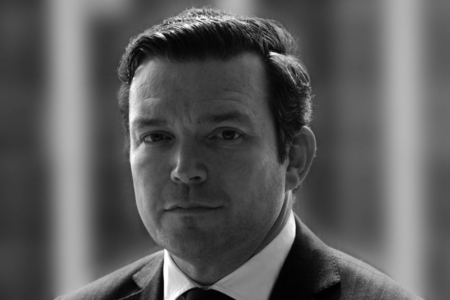 Purpose before productJBWere chief executive Justin Greiner looks back on his journey from selling Coca Cola in the former Soviet Bloc to managing one of the most venerable ... |
Latest News
Geopolitical risks force family offices into alternatives, cash: Survey
Labor proposes changes to ancillary funds
Australia's billionaire boom branded 'morally wrong' by Oxfam
Ironbark acquires family office firm
Cover Story

Skin in the game
PARTNER, MANAGING DIRECTOR
VIOLA PRIVATE WEALTH





